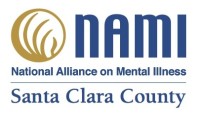For people struggling with a mental illness, a number of financial aid resources are available from the Federal government and from the State. State aid can be administered by State agencies, or by counties (in our area, this is Santa Clara County). NAMI-SCC provides general information on these programs, and who to contact to determine whether you qualify for such financial assistance.
For general information about disability benefits available in California, see the Disability Benefits 101 web site. For information about inclusive employment opportunities and other resources for people with disabilities, see Disability Resources on www.disability.gov.
Contents on this Page:
- Federal Financial Aid Programs
- State Financial Aid Programs, managed by State Agencies
- State Financial Aid Programs, managed by California Counties
- How to Transfer Benefits Between Counties
- Other Local Financial Assistance
Federal Financial Aid Programs
Federal financial aid programs are managed by the United States Social Security Administration (SSA), an independent agency of the United States federal government that administers Social Security, a social insurance program consisting of retirement, survivors’ benefits, and disability. Federal programs that assist people with a mental illness related disability are SSI and SSDI.
SSDI pays benefits to you and certain members of your family if you are both disabled and “insured” meaning that you worked for a long enough time period and have paid Social Security taxes out of your employment income.
SSI is a program run by Social Security that pays monthly checks to the elderly, the blind and people with disabilities (including serious mental illnesses) who cannot work, don’t own much and/or who don’t have much income. If you get SSI, you usually get food stamps and Medicaid too. Medicaid (called Medi-Cal in California) helps pay doctor and hospital bills.
While eligibility for Social Security disability is based on prior work history, SSI disability payments are made on the basis of financial need.
Applying for SSI and SSDI can be difficult due to how long a claim can take and the high chance of being denied. For more information and tips on obtaining SSI or SSDI, see our Applying for SSI/SSDI page. To apply immediately:
- Call Social Security at 1-800-772-1213, toll-free from 7AM to 7PM, Monday to Friday: , If you are deaf or hard of hearing, you can call us at TTY 1-800-325-0778.
- Apply online with Social Security
- Visit your local Social Security office. (Call first to make an appointment.)
Medicare is the federal health insurance program for people who are 65 or older, certain younger people with disabilities, who have received Social Security Disability benefits for 24 months. People who receive Medi-Cal as a result of a disabling condition may qualify for Medicare after a two-year waiting period.
State Financial Aid Programs, managed by State Agencies
Medi-Cal is California’s Medicaid program. This is a public health insurance program which provides needed health care services for low-income individuals including families with children, seniors, persons with disabilities, foster care, pregnant women, and low income people with specific diseases such as tuberculosis, breast cancer or HIV/AIDS.
To learn more about MediCal, call the 24-hour automated InfoLine at 1-877-96-BENEFITS or 1-877-962-3633, or visit the Santa Clara County Medi-Cal Health Coverage web site. If you wish to apply for Medi-Cal, the County offers mail, phone, online and in-person options. See the County’s Apply for Benefits web page for details. However, your eligibility can only be fully evaluated by an Eligibility Worker (EW). During the application process, your Eligibility Worker will explain in further detail what requirements specifically apply to your situation.
Medical Assistance Tool*
*(not a governmental program) Building upon the business and government Partnership for Prescription Assistance, the Medical Assistance Tool (MAT) gives patients, loved ones and health care providers a single point of access to hundreds of public and private assistance programs that help qualifying patients without prescription drug coverage get the medicines they need for free or nearly free.
Once on Medi-Cal, persons with a mental disability and an eligible work history can apply for Medicare after a two-year waiting period. Also. if you have both Medi-Cal and Medicare, you may be eligible for extra, integrated services via the California Medicare Medi-Cal Plan (Medi-Medi Plan). Download the factsheet about Medi-Medi Plans. There are three ways to join a Medi-Medi Plan:
- If already enrolled in a Medi-Cal plan, call the plan directly and ask about their Medi-Medi Plan option
- Call Medicare at 1-800-MEDICARE
- Call Health Care Options at 1-844-580-7272 (TTY 1-800-430-7077).
Covered California™ is an easy-to-use marketplace implementing the federal Affordable Care Act in California. Through Covered California, you and your family can compare affordable, quality health insurance options and choose the one that best fits your needs and budget. By law, your coverage can’t be dropped or denied if you have a pre-existing medical condition or if you get sick. You may even be able to get financial assistance through Covered California to make your health coverage more affordable.
To receive help with signing-up for Covered California in your area, you can search for persons and organizations certified and trained to provide such assistance:
-
- Go to the Covered California web site
- Mouse over the “Get Coverage” menu toward the top of the home page to find instructions about:
- Types of coverage available (including private insurance, Medi-Cal, Dental, Vision, Pregnancy Care, Prescription Drug Coverage)
- Obtaining financial assistance
- When to enroll
- Steps to enroll
- How to apply
- On the How to Apply page, there are 3 ways to start an application, including:
- Apply Online
- Call a Certified Enroller
- Have an Enroller Call You (apply by phone)
State Aid for unemployed workers is managed by the Employment Development Department (EDD), a part of the Labor and Workforce Development Agency of the State of California. EDD administers Unemployment Insurance, State Disability Insurance (Disability Insurance and Paid Family Leave), and Worker’s Compensation.
State Financial Aid Programs, managed by California Counties
California law requires that each county have a program to assist its low-income residents who are not eligible for cash assistance from other State and/or Federal programs. Santa Clara County’s program is called “General Assistance” or “GA.” The GA Program provides monthly payments to eligible persons legally residing in the County who have no other means of support.
The CalFresh Program helps single people and families with little or no income to buy food. In Santa Clara County, people authorized to receive CalFresh benefits can buy food by using a plastic CalFresh benefit card (as good as cash) to pay for food at a grocery store or other authorized place. Npte: Seniors and people with disabilities who receive Supplemental Security Income (SSI)/State Supplementary Payment (SSP) are allowed to receive CalFresh benefits. See Fact Sheet
To learn about eligibility requirements and how to apply for CalFresh, see the Santa Clara County Social Services Agency (SSA) Food Assistance website. If you wish to apply for CalFresh, the County offers mail, phone, online and in-person options. See the County’s Apply for Benefits web page for details.
NEW! How to Transfer Benefits Between Counties
If you have been receiving County benefits in another County, and move to Santa Clara County, you will need to request an “inter County Transfer (ICT)” from your previous County. Benefits that you must transfer from your old County to your new one include:
- Medi-Cal
- Cal Fresh
- CalWorks/cash-aid
For answers to frequently asked questions about Inter County Transfers, see Benefits Inter County Transfers.
For more detailed information, including how to establish residency in Santa Clara County, see Residency and Inter County Transfers (ICT).
Other Local Financial Assistance
Local County Financial Assistance with Medical Bills: County hospital systems must treat people needing medical care, even if they have no insurance. Patients are still responsible for their medical bills. But If you are uninsured, or even under-insured, you may be eligible for hospital “charity care” per the state of California law. People are “uninsured” if they have no medical insurance at all. People are considered “under-insured” if they have high out-of-pocket medical costs (usually defined as expenses that are greater than 10 percent of your income). If you receive medical treatment via the Santa Clara County Health and Hospital System, see their Financial Help for Health Care web page for more information.
If you are denied financial benefits, or you believe your benefits have been unlawfully terminated, you can contact the following legal agencies:
Law Foundation of Silicon Valley – Health/Mental Health Program – Telephone: 408-280-2420
Phone intake hours: Monday – Friday, 1pm-4pm
Walk-in hours: Tuesday and Thursday, 1pm-3pm
Address: 4 North Second Street, Suite 1300, San Jose, CA 95113
Health/Mental Health Program provides free legal advice and representation to any individual who lives in Santa Clara County and who identifies as having a mental health disability or who is experiencing homelessness. The Health Program can assist with:
- Public benefits, i.e. denials, overpayments and terminations of SSI/SSDI, Medi-Cal, Medicare, CalWORKs, CalFresh, CAPI, General Assistance, and Veterans’ benefits
- Reasonable accommodation to access benefit programs
- Investigations of allegations of abuse or denial of rights at mental health facilities
- Assistance with name and gender marker to align with gender identity
- Advocacy for access to County mental health services
- Advocacy for access to mental health treatment in the County jails
- Limited counsel and advice for debtor’s rights/creditor harassments
Bay Area Legal Aid Economic Justice Project – Telephone: 800-551-5554 for legal advice line. Mon & Fri 9:30-3, Tues & Wed 9:30-1, or until capacity reached
Represents individuals and families appealing unlawful terminations and wrongful denials of Supplemental Security Income, General Assistance, Food Stamps, In-Home Supportive Services, and also works to ensure that the CalWORKs program serves as a bridge to gainful employment.







